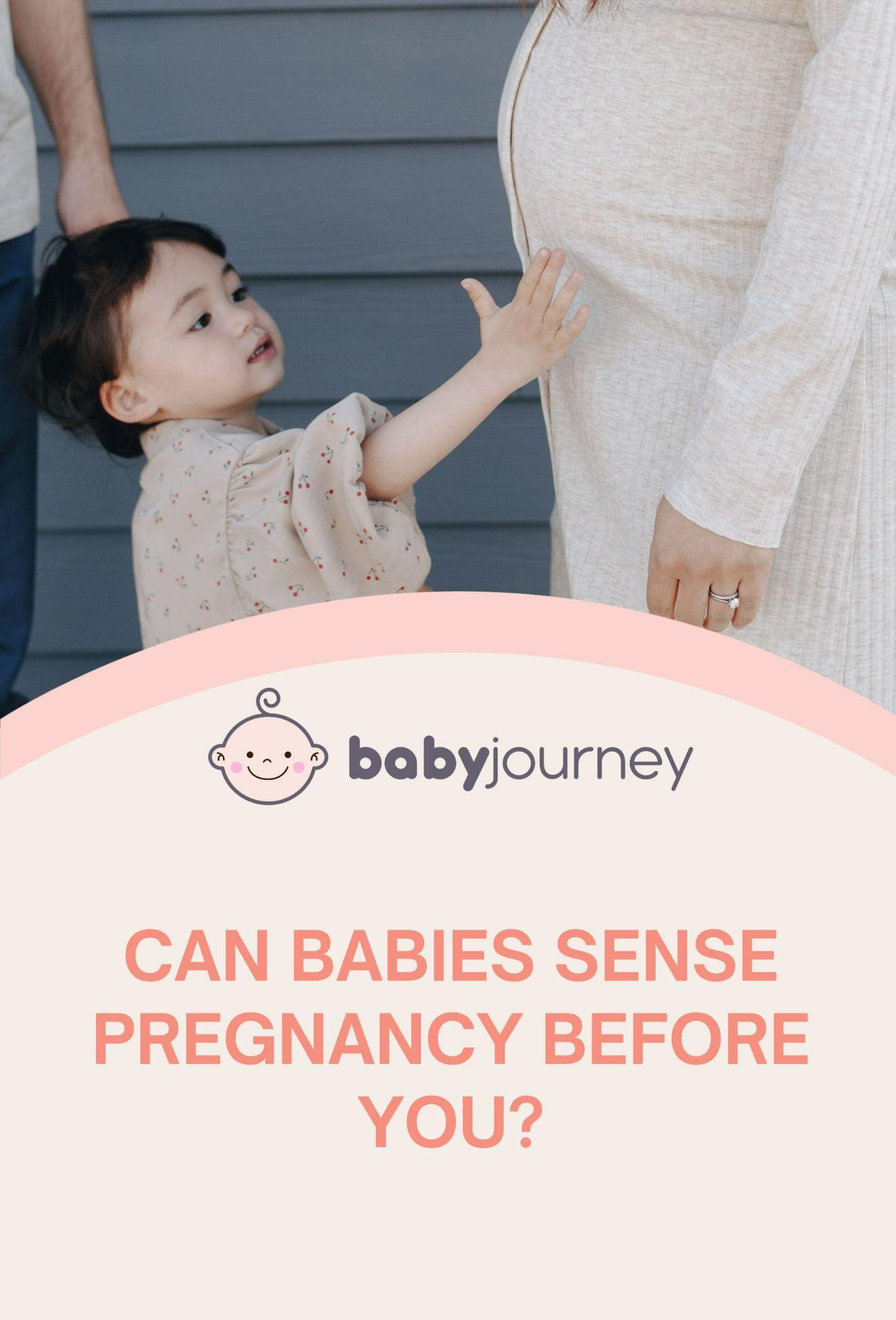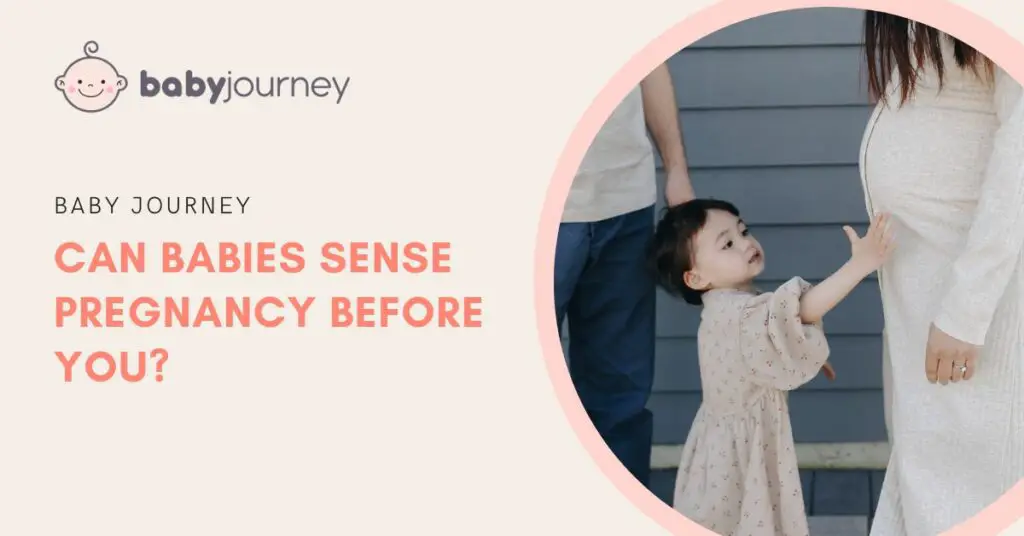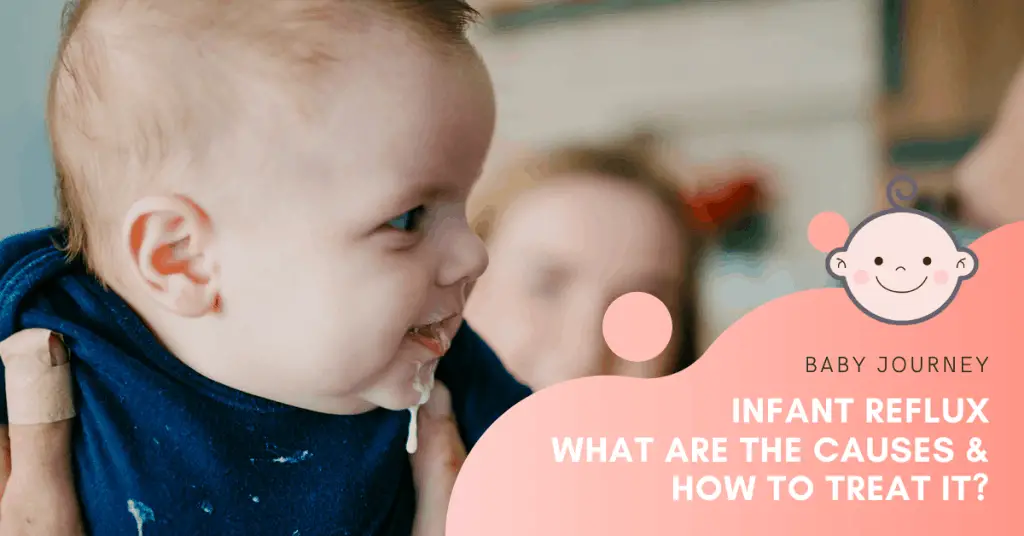Can babies sense pregnancy before you know? Babies are often described as intuitive and sensitive to their surroundings, leading some to believe that they can sense when their mother is pregnant before she even knows. This belief has led to a number of myths and old wives’ tales about the ability of babies to detect pregnancy symptoms, such as changes in their behavior or crying more often. But is there any truth to these claims?
Unfortunately, there is no scientific evidence to support the idea that babies can sense pregnancy before their mother is aware of it. While babies are certainly capable of picking up on changes in their environment, such as changes in their mother’s mood or routine, there is no evidence that they can detect the presence of a fetus before it is detectable by medical tests. However, this does not mean that babies are not affected by their mother’s pregnancy, when mom is pregnant and there are a number of ways in which a pregnancy can impact a baby’s development and behavior.
Despite the lack of scientific evidence, many mothers continue to believe that their babies can sense their pregnancy before they know it. While this belief may be rooted in intuition or personal experience, it is important to remember that every baby is different, and what works for one family may not work for another. Ultimately, the most important thing is to listen to your baby and respond to their needs, whether or not you believe they can sense your pregnancy.
- Understanding Babies' Perception
- Babies and Pregnancy: An Overview
- Physical Changes in a Pregnant Mother
- Emotional and Behavioral Changes
- The Role of the Environment
- Signs Babies May Sense Pregnancy
- Preparing for a New Sibling
- Understanding Fertility and Conception
- The Process of Childbirth
- Parenting and Nurturing
- Conclusion
Understanding Babies’ Perception

Babies are born with the ability to perceive the world around them, but their senses are not fully developed. They rely on their senses to explore and learn about their environment. Understanding how babies perceive the world can help parents better care for their infants.
Sensory Development
Babies’ sensory development begins in the womb and continues after birth. They are born with all five senses, but their senses are not fully developed. Over time, their senses become more refined, allowing them to better perceive the world around them.
Sight
At birth, babies can see but their vision is blurry and they can only focus on objects that are within a few inches of their face. As they grow, their vision improves, and they can see objects at a greater distance. By three months, babies can see colors and distinguish between different shapes.
Smell and Taste
Babies are born with a sense of smell and taste, which they use to explore their environment. They can distinguish between different smells and tastes, and they have a preference for sweet flavors. Breast milk and formula provide the necessary nutrients for babies’ growth and development, and their sense of taste helps them to enjoy these essential foods.
Touch
Babies’ sense of touch is one of their most developed senses at birth. They use their sense of touch to explore their environment and to bond with their caregivers. Skin-to-skin contact is important for bonding and can help regulate babies’ body temperature and breathing.
Sound
Babies are born with the ability to hear and can recognize familiar voices. They are also sensitive to loud noises and may startle at sudden sounds. Over time, babies’ hearing improves, and they can distinguish between different sounds and voices.
Sensory Integration
Babies’ senses work together to help them perceive the world around them. Sensory integration is the process of combining information from different senses to create a complete picture of the environment. As their senses become more refined, babies are better able to integrate information from different senses, which helps them to better understand their environment.
In conclusion, understanding how babies perceive the world can help parents better care for their infants. Babies’ senses are not fully developed at birth, but they improve over time through sensory development and integration. By providing a safe and stimulating environment, parents can help their babies develop their senses and explore the world around them.
Babies and Pregnancy: An Overview
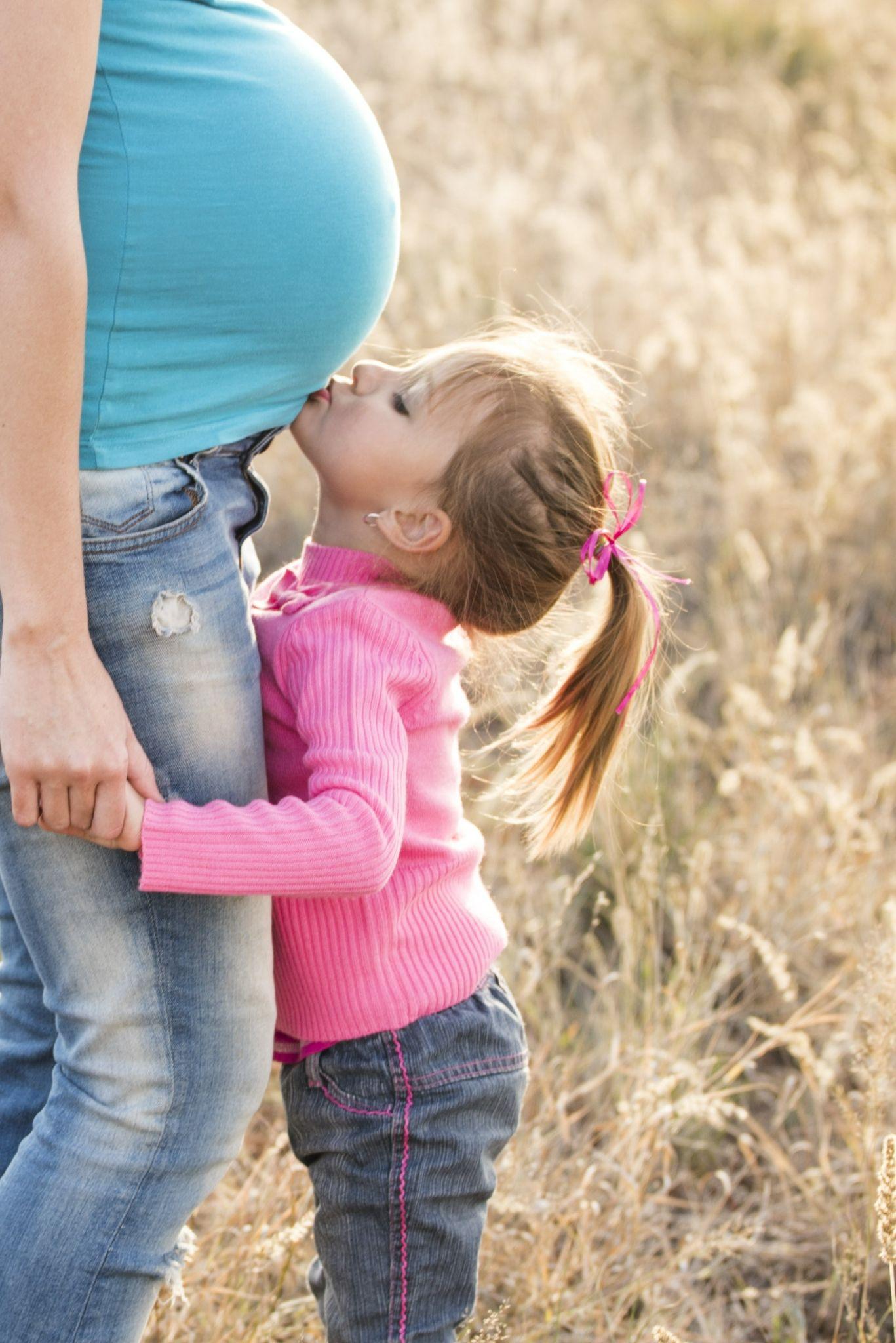
Pregnancy is a life-changing experience for a woman, but it can also be an exciting time for the baby growing inside her. While babies are not capable of verbal communication, they can sense and respond to various stimuli, including changes in their mother’s body during pregnancy.
Research suggests that babies and toddlers can sense pregnancy well before their mother even knows she is pregnant. Toddlers, in particular, may be more aware of pregnancy due to changes in their mother’s behavior and physical appearance. They may become more clingy or interested in their mother’s stomach, for example.
During pregnancy, babies are busy developing physical adaptations to function after birth, but they are also eagerly sensing the world around them. From a very early gestational age, babies can sense the world around them, starting from touch receptors in their face, mostly on their lips and nose, that connect to their growing brain by week 8 of pregnancy.
By week 12, touch receptors start to form all over, including their genitals, palms, and the soles of their feet. By week 17, the abdomen is also included. By week 32, every part of a fetus has touch receptors.
While the exact mechanisms of how babies sense pregnancy are not fully understood, it is believed that they can detect changes in hormones, pheromones, and even subtle changes in their mother’s behavior. The bond between mother and child begins to form during pregnancy, and babies can sense their mother’s emotions and respond to them.
In conclusion, babies can sense pregnancy before their mother even knows she is pregnant. They can detect changes in their mother’s body and behavior and respond to various stimuli. The bond between mother and child begins to form during pregnancy, and babies can sense their mother’s emotions and respond to them.
Physical Changes in a Pregnant Mother

Pregnancy is a time of immense change for a woman’s body. As the body prepares to carry and nourish a growing fetus, it undergoes a variety of physical changes that can be both exciting and challenging.
Bloating is one of the most obvious pregnancy-related changes. The body retains more water than usual as a result of hormonal changes, resulting in swelling throughout the body, including the stomach. This can be uncomfortable and may lead to feelings of heaviness or tightness in the abdomen.
Speaking of the stomach, it also undergoes significant changes during pregnancy. As the uterus expands to accommodate the growing fetus, it can put pressure on the stomach, leading to heartburn, indigestion, and other digestive issues. Some women may also experience constipation or diarrhea as a result of these changes.
Hormones play a major role in pregnancy, particularly the hormone progesterone. This hormone helps to relax the muscles in the uterus, allowing it to expand to accommodate the growing fetus. However, it can also lead to other changes in the body, such as increased fatigue, mood swings, and changes in appetite.
Another hormone that plays a key role in pregnancy is human chorionic gonadotropin (hCG). This hormone is produced by the placenta and helps to support the growth of the fetus. It is also responsible for many of the early symptoms of pregnancy, such as nausea, vomiting, and fatigue.
Overall, the physical changes that occur during pregnancy can be challenging, but they are also a sign of the incredible work that a woman’s body is doing to support the growth and development of a new life.
Emotional and Behavioral Changes
Pregnancy can bring about a range of emotional and behavioral changes in expectant mothers. Hormonal fluctuations can cause mood swings, making women feel happy one moment and sad the next. They may also feel more irritable and easily annoyed. These changes can be overwhelming for some women, and they may need extra support from their partners or loved ones.
Some women may also experience feelings of insecurity and fear during pregnancy. They may worry about their ability to care for their baby or have concerns about the delivery process. These fears are normal, and it can be helpful to talk to a healthcare provider or counselor to address them.
As the due date approaches, some women may become more clingy and seek more physical affection from their partners. This is a natural response to the impending arrival of a new baby and can be a way for women to feel more connected to their partners during this time of change.
In addition to emotional changes, pregnancy can also bring about behavioral changes. Some women may experience changes in their appetite, either craving certain foods or experiencing aversions to others. They may also feel more fatigued and need more rest than usual.
Overall, it is important for expectant mothers to be aware of these emotional and behavioral changes and to seek support if needed. By taking care of their emotional and mental health, they can better prepare themselves for the journey of motherhood.
The Role of the Environment
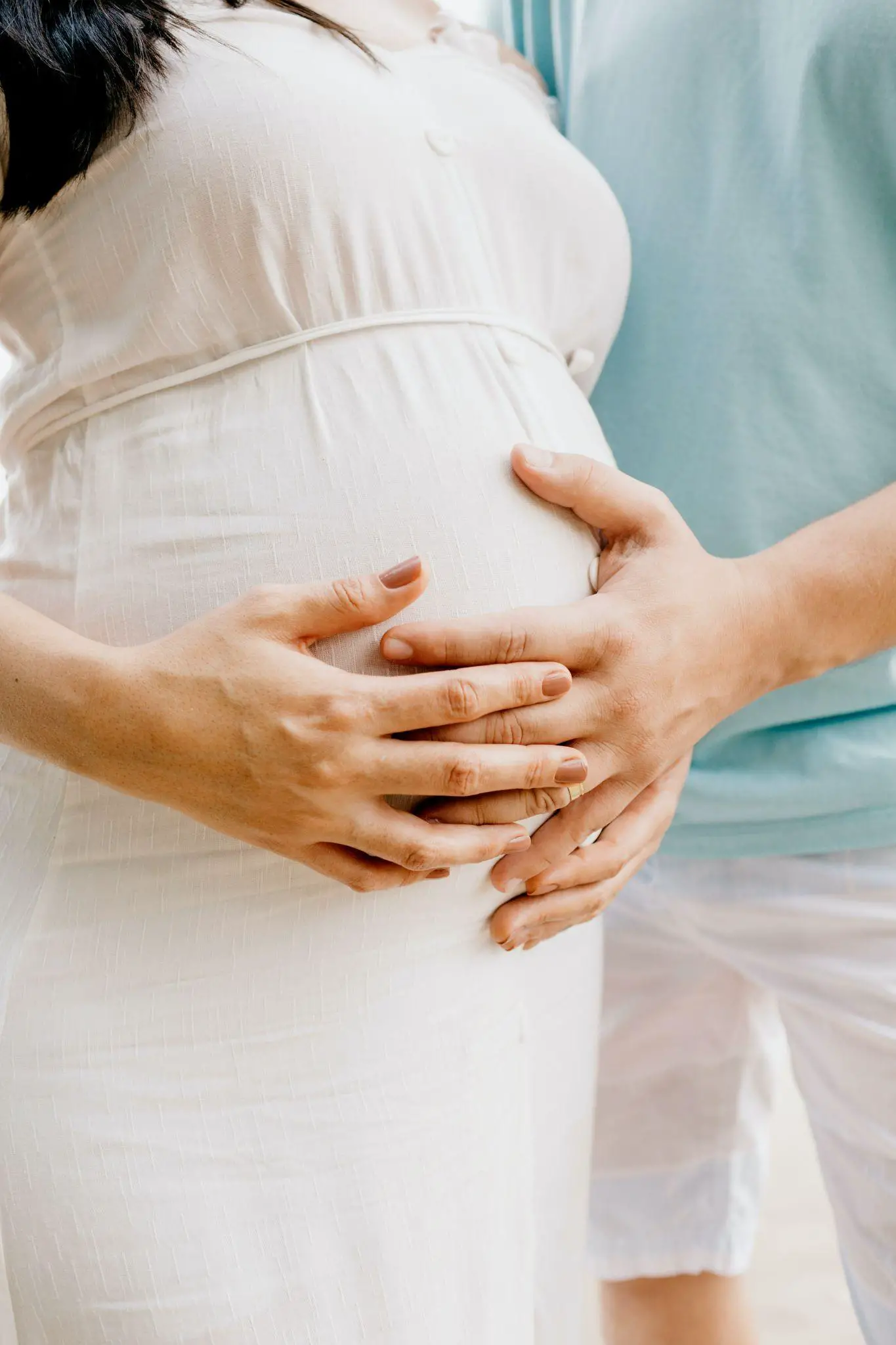
Babies are highly sensitive to environmental stimuli, and the prenatal period is a critical time for their development. The environment can have a significant impact on the growth and development of a fetus, and this includes the possibility of sensing pregnancy before it is known.
One environmental factor that can affect a baby’s development is light. Studies have shown that fetal exposure to light can influence the development of the visual system and circadian rhythms. This means that a pregnant woman’s exposure to light can potentially affect her baby’s ability to sense pregnancy.
Overheard conversations can also play a role in a baby’s development. Fetuses can hear sounds from outside the womb as early as 20 weeks gestation, and this includes voices. If a pregnant woman talks about her pregnancy or expresses stress or anxiety about it, her baby may pick up on these cues and respond accordingly.
Family members can also influence a baby’s development through their interactions with the pregnant woman. If a woman’s partner or other family members are excited about the pregnancy, their positive emotions can potentially affect the baby’s development. Conversely, if there is tension or conflict in the family, this can also impact the baby’s development.
In conclusion, the environment plays a crucial role in a baby’s development, and this includes the possibility of sensing pregnancy before it is known. Factors such as light exposure, overheard conversations, and family interactions can all potentially affect a baby’s development during the prenatal period.
Signs Babies May Sense Pregnancy
There is no scientific evidence to support the claim that babies can sense pregnancy before their mothers know it. However, many mothers have reported anecdotal evidence that their babies acted differently around them during early pregnancy. Here are some signs that babies may sense pregnancy:
- Increased clinginess: Some mothers have reported that their babies become more clingy and demand more attention than usual during early pregnancy. This could be because the baby senses that something is different and wants more comfort and reassurance from their mother.
- Changes in feeding behavior: Some mothers have reported that their babies become more interested in breastfeeding or bottle-feeding during early pregnancy. This could be because the baby senses that their mother’s body is changing and they need more nourishment.
- Increased fussiness: Some mothers have reported that their babies become more fussy and irritable during early pregnancy. This could be because the baby is picking up on their mother’s stress and anxiety about the pregnancy.
- Changes in sleep patterns: Some mothers have reported that their babies have trouble sleeping during early pregnancy. This could be because the baby is picking up on their mother’s hormonal changes and is having trouble adjusting to the new environment.
While these signs may indicate that babies are perceptive and may sense changes in their mother’s body, it is important to remember that every baby is different and may not exhibit these signs. Additionally, it is important to consult with a healthcare professional if you suspect you may be pregnant or have concerns about your baby’s behavior.
Preparing for a New Sibling

When expecting a new baby, parents should also prepare their older child for the arrival of a new sibling. This can help ease any anxiety or jealousy the child may feel and make the transition smoother for the whole family.
One way to prepare a child for a new sibling is to involve them in the process. Parents can discuss the pregnancy with their child and include them in preparations for the new baby, such as picking out clothes or toys. This can help the child feel included and excited about the arrival of their new sibling.
Parents can also discuss with their child what to expect when the new baby arrives. This can include talking about how the baby will cry a lot and need a lot of attention, but also how the baby will eventually grow and become a playmate for the older child.
It’s important for parents to be empathetic towards their older child during this time. They should acknowledge any feelings of anxiety or jealousy and reassure their child that they are loved and valued. Parents can also set aside special one-on-one time with their older child to make them feel special and important.
Overall, preparing a child for a new sibling involves open communication, empathy, and involving the child in the process. By doing so, parents can help their child adjust to the new addition to the family and create a positive and loving environment for everyone.
Understanding Fertility and Conception
When a couple decides to start a family, they may wonder how long it will take to conceive. Understanding fertility and conception can help couples increase their chances of getting pregnant and make the process less stressful.
Getting Pregnant
Getting pregnant requires the fertilization of a woman’s egg by a man’s sperm. For most couples, getting pregnant can take up to a year of trying. However, there are many factors that can affect fertility, including age, health, and lifestyle choices.
Women are most fertile during their ovulation period, which is when an egg is released from the ovary and travels down the fallopian tube. Ovulation typically occurs around day 14 of a 28-day menstrual cycle. However, every woman’s menstrual cycle is different, and some women may ovulate earlier or later.
Fertility Treatments
If a couple has been trying to conceive for over a year without success, they may consider fertility treatments. Fertility treatments can range from medications that stimulate ovulation to more invasive procedures such as in vitro fertilization (IVF).
It is important to note that fertility treatments can be expensive and may not always be successful. Couples should discuss their options with a fertility specialist and consider the emotional and financial impact of these treatments.
Conception
Conception occurs when a sperm fertilizes an egg, which then implants in the lining of the uterus. If conception is successful, the fertilized egg will continue to grow and develop into a fetus.
It is important for couples to maintain a healthy lifestyle during pregnancy to ensure the best possible outcome for both the mother and the baby. This entails maintaining a healthy weight, working out frequently, and abstaining from dangerous substances like alcohol and tobacco.
In conclusion, understanding fertility and conception can help couples increase their chances of getting pregnant and make the process less stressful. Couples should discuss their options with a healthcare provider and make lifestyle changes to optimize their chances of a healthy pregnancy.
The Process of Childbirth
Childbirth is the process of giving birth to a baby. It is a natural process that usually occurs between 37 and 42 weeks of pregnancy. The process of childbirth can be divided into three stages: labor, delivery, and afterbirth.
Labor
Labor is the first stage of childbirth. It is characterized by regular contractions of the uterus that help to dilate and efface the cervix. The contractions become more frequent and intense as labor progresses. During this stage, the mother may experience pain, discomfort, and pressure in the lower back and abdomen. She may also feel the urge to push.
Delivery
Delivery is the second stage of childbirth. It begins when the cervix is fully dilated and ends when the baby is born. The mother pushes during this phase to aid the baby’s passage through the birth canal and out of the vagina. The head of the infant comes out first, then the shoulders, and finally the rest of the body. The baby is usually born within a few minutes of the mother’s last push.
Afterbirth
Afterbirth is the third and final stage of childbirth. It begins after the baby is born and ends when the placenta is delivered. During this stage, the uterus continues to contract to help the placenta separate from the uterine wall. The placenta is then expelled from the uterus through the vagina.
In conclusion, childbirth is a natural process that can be divided into three stages: labor, delivery, and afterbirth. The process can be painful and uncomfortable, but it is also a beautiful and life-changing experience for both the mother and the baby.
Parenting and Nurturing
When it comes to parenting and nurturing during pregnancy, many parents wonder if their baby can sense the changes happening in their body. While there is no scientific evidence to support the idea that babies can sense pregnancy before you know, it is important to be mindful of the emotional and physical changes that come with pregnancy.
One important aspect of parenting during pregnancy is ensuring that the mother is getting enough nutrients and rest to support the growing baby. This includes a healthy, balanced diet and plenty of water to stay hydrated. Breastfeeding is also an important part of parenting and nurturing after the baby is born, providing essential nutrients and bonding time for both mother and baby.
In addition to physical care, emotional support is also crucial during pregnancy and beyond. This can include spending time with loved ones, practicing self-care, and seeking professional help if needed. It is important for parents to prioritize their own mental health as well as the well-being of their baby.
Overall, while there is no evidence that babies can sense pregnancy before you know, it is important for parents to prioritize their own physical and emotional health as well as the well-being of their baby. With proper care and nurturing, parents can help ensure a healthy and happy pregnancy and beyond.
Conclusion
In conclusion, the idea that babies can sense pregnancy before the mother knows is a popular myth. While babies are capable of sensing changes in their environment, there is no scientific evidence to support the notion that they can detect pregnancy before it is confirmed by medical tests.
However, it is important to note that babies do have an innate ability to sense and respond to their mother’s emotional and physical state. This means that if a mother is experiencing changes in her body due to pregnancy, her baby may pick up on these cues and respond accordingly.
Furthermore, studies have shown that babies are capable of developing empathy and judgment of character even in their early stages of development. This means that they may be more attuned to their mother’s emotional state during pregnancy and respond accordingly.
Overall, while babies may not have a “sixth sense” when it comes to detecting pregnancy, they are still highly attuned to their mother’s physical and emotional state. It is important for expectant mothers to take care of themselves and seek medical attention if they suspect they may be pregnant, as this can have a positive impact on both their own health and the well-being of their baby.
